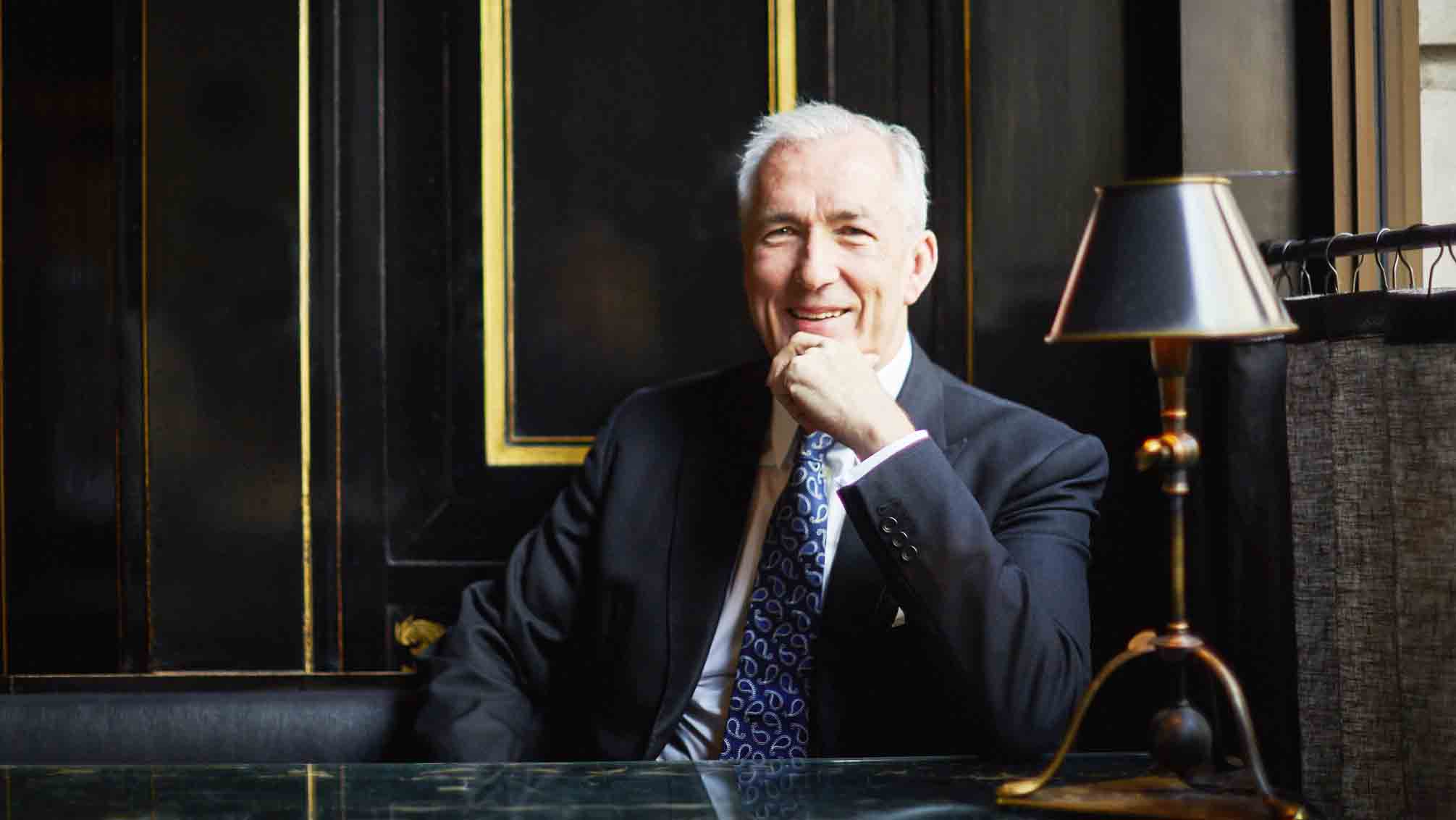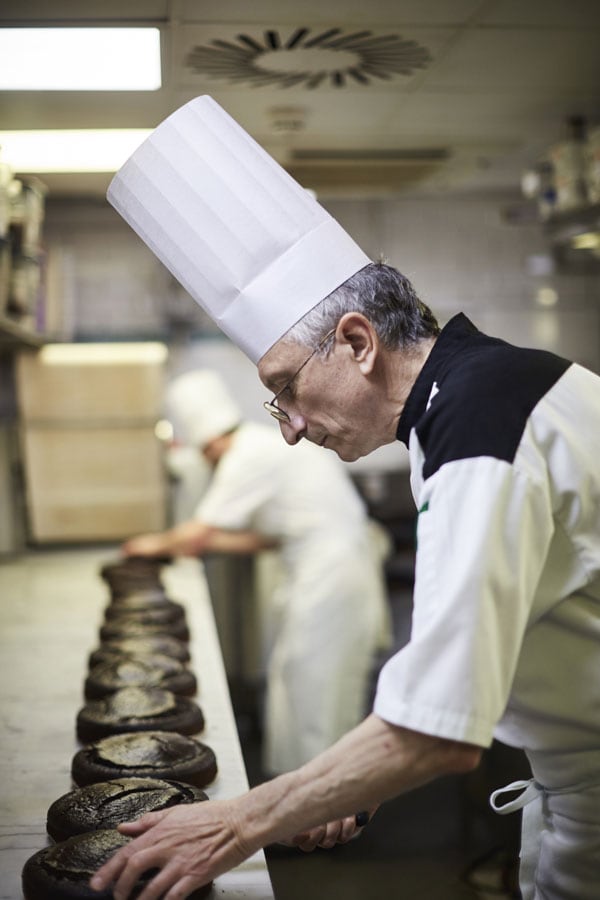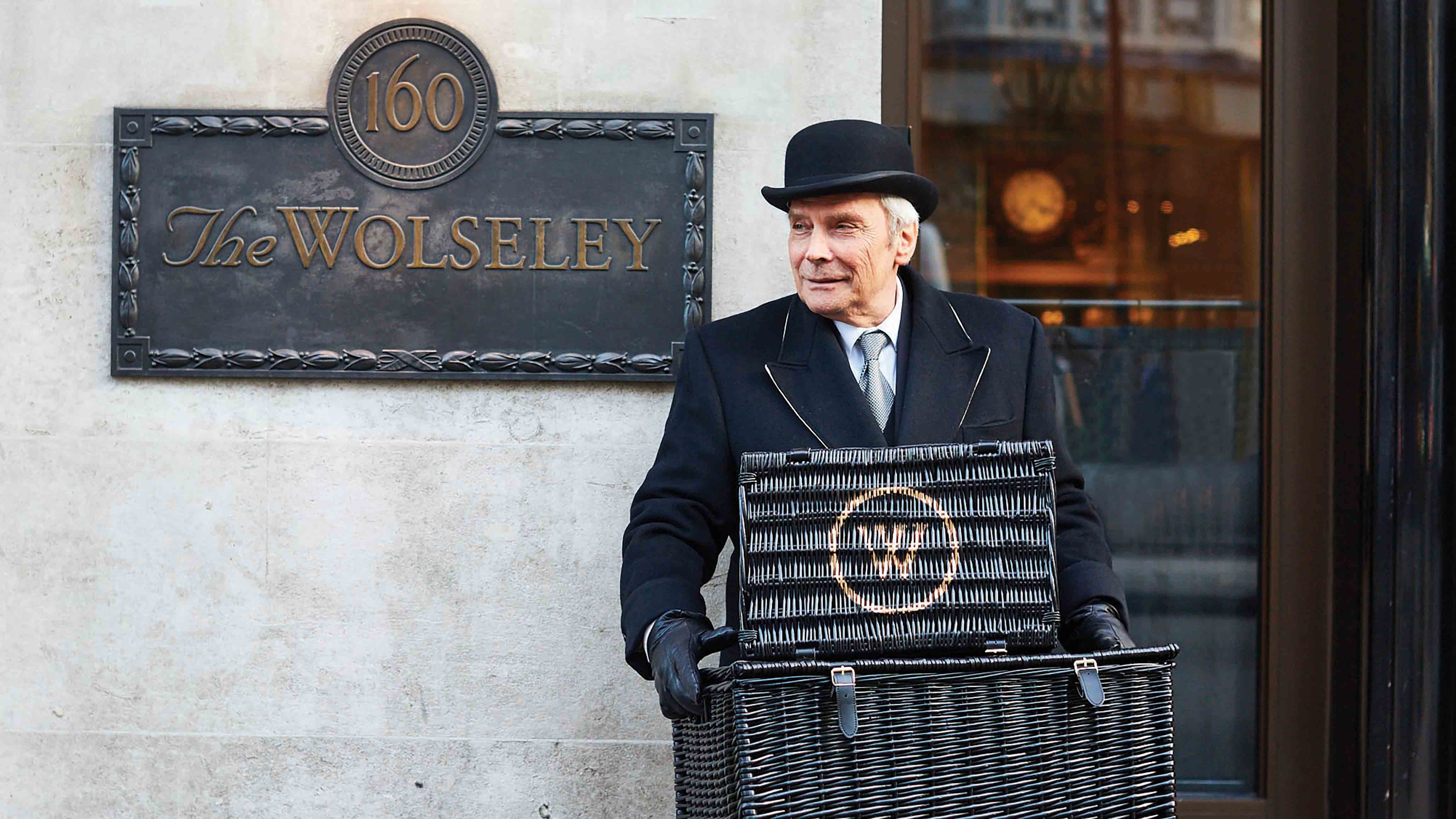Shirley Gray is assistant maître d’ at The Delaunay, Corbin and King’s grand brasserie in The Strand. Having worked at the company for almost seven years, she’s one of its longest serving employees. At 73, she’s also the oldest.
She’s by no means the only person to be working at the company in the latter stages of their career. At The Wolseley in Piccadilly, another brasserie in the Corbin & King group, 57 year-old Raymond Johnson can be seen manning the door, while back at The Delaunay there’s Regis Negrier, head of creative development, who is 56 years old.
In fact, Corbin & King isn’t a stranger to an older workforce. Out of its 900 or so staff, 65 are over the age of 50. Yet company co-founder Jeremy King is hoping for this figure to at least double as a result of a new initiative it has launched to actively bring more people aged over 50 into its ranks.
“There is so much experience and knowledge, or should be, among people who have lived a life compared to someone only a year or so out of college,” says King. “This is very much why this initiative is starting.”
With staffing challenges in the industry as they are, recruiting from an older, and largely untapped pool of people makes sense. Last year, the company had up to 100 vacancies it was unable to fill, and while this has more than halved to around 45 this year thanks, says King, to the large number of restaurant closures, recruitment remains high on any restaurateur’s mind.
Yet the initiative is not one that is born out of necessity. Instead, it came to fruition following two restaurant experiences King had in America, both of which cemented his view that the world of hospitality was not the preserve of the young and trendy, where youth and attitude is often placed before experience. The first was at New Orleans restaurant Peche, where King and his wife were initially served by a young woman typical of today’s hip new restaurant front-of-house staff.
“She had unusual hair, tattoos, but also a slight air of ‘I’m looking after you but I don’t really do this for a living, I’m a musician’ about her,” he recalls.
He wouldn’t have given it another thought except that on moving to a more favourable booth in the restaurant they were then served by a different staff member, one who would have more of a lasting impact.

“Up to the table comes a guy in his mid-50s. He looked completely out of place but the moment he opened his mouth we melted,” continues King.
“He was so comfortable in his own skin. He said hello as if he meant it. The whole experience was remarkable.”
The experience in New Orleans was compounded by a visit to New York and of-the-moment restaurant Upland. Here, King elected to sit at the bar and was served again by somebody in their 50s.
“Immediately I felt as though somebody was talking to me who really understood what they were doing,” he says.
Hospitality missing a trick
According to figures from the Office of National Statistics, 30% of the UK workforce is now aged 50 or over, amounting to more than 10 million people. Yet this is not reflected in hotels and catering, something that King views as a missed opportunity. One reason for this, he believes, is that people over 50 don’t regard hospitality as a suitable industry to enter or return to because it is now regarded as a young person’s workplace.
“Often we are very ageist, there is a prejudice in the industry,” he says.
“There are a lot of people who have been in the restaurant business and then gone off and done other things and they feel uncomfortable about coming back because they are perceived to be too old. Speaking as someone who is 64 – even when you’re in your 60s, you still think you’re 28.”
It’s not just in hospitality where older people feel unwelcome. Findings from a poll of more than 1,100 employees over the age of 50, commissioned last month by the Centre for Ageing Better, show that, since turning 50, 14% of over-50 employees believe they have been turned down for a job due to their age and nearly one in five (18%) have or have considered hiding their age in job applications. It also found that 46% of people think their age would disadvantage them in applying for a job and 20% think people see them as less capable due to their age.
“With job vacancies and numbers in work both at record levels, employers must act now to attract and retain skilled older workers or they will fall behind their competitors,” says Patrick Thomson, senior programme manager at the Centre for Ageing Better. “Employers risk losing their most experienced people and face labour and skills shortages. Every employer needs to become more age-friendly and take steps today to ensure they have a workforce for the future.”

For King it is not just about securing a future workforce: recruiting older people creates a more diverse and balanced working environment that is vital in the world of hospitality. A number of people in their 50s have returned to the company having left for other jobs, and with them comes experience. “It’s wonderful because they teach, and they are normally calm because they have seen and done it all before, and act as wonderful leaders. It does bring gravitas to the restaurant floor. I like the diversity of ages.”
He equates the initiative to steps the company took years ago to address the imbalance of both male and female customers and staff in its restaurants.
“In the early ’80s, if you went to Le Caprice (which King and his partner Chris Corbin acquired in 1981) for lunch, there was a 90% chance you were male. Women who did come though the doors were often made to feel uncomfortable by men eyeing them up. We made a vow that until we had 50:50 male:female split, we wouldn’t have a civilized restaurant.
“Often we had three or four ladies in for lunch who were a bit more responsible and did not drink as heavily as the male customers. Financially, it was a bad decision in the short term, but in the long term it was much better.”
At The Wolseley, early breakfast time is more male-dominated, says King but, after 10am, the room becomes more female-led. The company has also addressed the male:female split in its workforce, and while it is still not up to parity, it employs many more women than it did a decade ago.
“In the past there used to be a maximum 5% female chefs in the kitchen, we are now moving into situation where if you go to The Wolseley you can find 40% to 45% of the team on a service is female. This gives a much better balance. Generally, men behave better around women, which cuts out the things that give the industry a bad name.”
The benefits of experience
In the current climate, where the industry is facing a severe staff shortage for both front-of-house and back-of-house positions, the uncertainty of Brexit and the movement of vital overseas workers is in doubt, it makes sense to expand the pool of potential candidates. But is hiring people in the latter stages of their working life really a viable proposition, and do people want to be served by an older generation?
“Before New Orleans I would have thought that this is all very well, but a 20-year-old doesn’t want to be served by a 50-year-old,” says King.
“But both the restaurants where I was served by older people were super trendy. It might not work for every restaurant but it will for a lot of them.”
King also refutes the perceived wisdom that older staff who have already had a long career are less likely to stay in any new position for very long. Compared to millennial staff, over-50s often have greater staying power in their roles, he says.
“When I say to people I want older staff, their response is that they won’t be around for long, but they often stay much longer than a lot of millennials, who tend to stay for only one to two years and then move on. We want people who are more settled and are looking for different things in life.”
King also points to the fact that while the number of Europeans in the UK hasn’t reduced since the Brexit vote, he says that it has impacted on the number of these people looking for a career in restaurants.
“A lot of Polish people were building a future here, you could get 10 to 15 years’ service out of them. But we’re driving people away and now a high proportion are only coming for six months. This can work for some restaurants but for classical places like ourselves, that’s not right,” he explains.
“The best restaurants are when the creators create something where they would like to go to. And if that restaurant has staff members who look after the customers as the proprietor would like to look after the customers, you’ve got half the battle won. I find that is easier to do with longer-term staff than transient ones. People often ask me what the best restaurants are. I tell them that they are the ones who know you best. It’s very difficult to teach that if a member of staff is only going to be with you for six months.”
And, rather than requiring large salaries and the rethinking of bonus schemes, the over-50s are relatively easy to retain and motivate, he adds. “Somebody in their 50s is more settled, accommodation wise. Someone in their 20s is paying a disproportionate amount of their salary in rent compared with most people in their 50s and 60s. Money is not such a big factor for them. Ultimately, I can’t believe somebody over 50 will work in a restaurant unless they really like it.
“People in their 50s don’t need much other than being given the confidence that they will be welcomed and not looked at disdainfully because they are that much older.”

